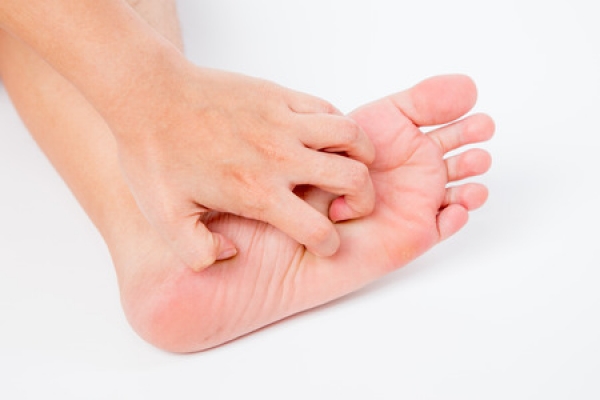You may think you know about athlete’s foot—at least how to recognize it. A red rash that’s dry and flaky and itches and burns like crazy are the telltale signs. However, at Superior Foot & Ankle Care Center we know there’s more to know about this disorder than how it feels. Below are some important facts about this skin condition:
FACT: Athlete’s foot is a fungal infection. There are many different types of fungi that cause athlete’s foot. It’s necessary for our podiatrists, Dr. Victoria Foley and Dr. Constance Omelas to examine your feet and determine the fungus responsible for the outbreak in order to prescribe the correct medicine.
FACT: Athlete’s foot is easily spread to other parts of the body. Fungal toenails and jock itch, for example, can develop when you touch a spot on your feet that has athlete’s foot and then touch someplace else on your body. Athlete’s foot is also extremely contagious to other people.
FACT: Fungi love moist, warm, dark places. Gym locker rooms, the cement around the town pool, public showers, nail salons and the insides of closed-in shoes are all prime spots for fungi to grow.
FACT: You can greatly reduce the risk of getting athlete’s foot if you keep your feet covered when walking in public places and avoid sharing soap, towels, footwear, nail clippers and any other items that touch another person’s foot.
FACT: Personal care habits can also decrease your risk of athlete’s foot. You should wash your feet every day and dry them completely. Using a talcum foot powder on your feet before putting your socks on can help keep feet dry.
FACT: Your footwear choice is important if you are prone to athlete’s foot. Look for socks designed to specifically take moisture away from your feet. Change your socks during the day when you notice that your feet feel moist. Choose shoes that allow air to circulate and feet to breath.
Good podiatric care can help eliminate your chances of getting athlete’s foot. If you have a chronic fungal foot infection problem, contact our Long Beach office (562) 420-9800) to learn ways to get permanent relief.

